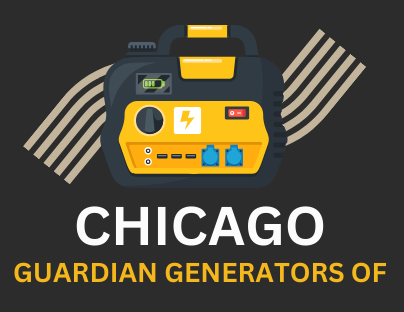Whole House Generators in McKinley Park IL
A whole house generator is a robust power backup system designed to provide electricity to an entire home during a power outage. Unlike portable generators that power just a few appliances, a whole house generator can keep your entire home running smoothly, including essential systems like heating, cooling, and appliances. These systems are usually installed permanently outside your home and connected directly to your electrical system.
Importance of Having a Whole House Generator
Power outages can be inconvenient and potentially dangerous, particularly during extreme weather conditions or emergencies. A whole house generator ensures that you remain comfortable and safe by supplying power continuously, even when the grid fails. It prevents disruptions to your daily life, keeps your food fresh, and ensures your home security systems stay operational.
Types of Whole House Generators
Whole house generators come in several types, each with its own benefits:
- Standby Generators: These are permanently installed and automatically start when the power goes out. They are connected to your home's natural gas or propane supply, so you don't have to refuel them manually.
- Portable Generators: While not ideal for powering an entire home, they can be used to power essential appliances and can be moved as needed. They require manual setup and refueling.
- Inverter Generators: Known for their efficiency and quieter operation, inverter generators are suitable for sensitive electronics but usually have a lower power capacity compared to standby models.

Key Considerations When Choosing a Whole House Generator
Selecting the right generator involves several factors:
- Power Needs: Calculate your home’s power requirements to determine the generator’s capacity. Consider essential appliances, heating and cooling systems, and any other critical equipment.
- Fuel Type: Decide between natural gas, propane, or diesel. Natural gas and propane are common choices for their convenience and reliability.
- Installation Space: Ensure there is adequate space for installation and that the generator is placed in a location with proper ventilation.
- Noise Levels: Check the noise levels of the generator, especially if it will be located near living areas or in a residential neighborhood.
Installation Process
Installing a whole house generator involves several key steps:
- Site Assessment: A professional will evaluate your property to determine the best location for the generator.
- Permits and Regulations: Obtain any necessary permits and ensure compliance with local regulations and building codes.
- Generator Placement: The generator is installed on a concrete pad or similar stable surface.
- Electrical Connection: The generator is connected to your home’s electrical system, often requiring the installation of a transfer switch to ensure a seamless switch between utility power and generator power.
- Testing: The system is thoroughly tested to ensure it operates correctly and meets all safety standards.
Maintenance Tips for Longevity
To keep your generator running efficiently and extend its lifespan:
- Regular Testing: Run your generator periodically to ensure it’s working properly.
- Scheduled Maintenance: Follow the manufacturer’s maintenance schedule, including oil changes, filter replacements, and inspections.
- Clean Environment: Keep the area around the generator clean and free from debris to ensure proper ventilation.
- Professional Servicing: Have a qualified technician perform annual inspections and service.
Cost Considerations
The cost of a whole house generator can vary based on several factors:
- Generator Size and Type: Larger generators and those with more advanced features generally cost more.
- Installation Complexity: Costs may increase based on the complexity of the installation, including electrical and plumbing work.
- Fuel Type: Different fuels have varying costs, and the availability of fuel sources can affect the overall expense.
- Maintenance: Ongoing maintenance costs should be factored into your budget for long-term ownership.
Safety Precautions
Ensuring the safe operation of your whole house generator involves:
- Proper Installation: Ensure the generator is installed by a certified professional.
- Ventilation: Place the generator in a well-ventilated area to prevent carbon monoxide buildup.
- Regular Inspections: Have your generator inspected regularly to identify and address potential issues.
- Emergency Procedures: Familiarize yourself with emergency procedures in case of generator malfunction or other issues.
What We Offer
At our company, we provide comprehensive
whole house generator services in McKinley Park, IL. This includes:
- Residential Generators
- Commercial Generators
- Portable Generators
- Electric Generators
- Propane Generators
- Solar Generators
- Generator Repairs
- Generator Maintenance
- Generator Parts
If you’re interested in learning more about whole house generators or need assistance with installation and maintenance, contact us today. Our team is ready to provide expert advice and service to ensure you have reliable power when you need it most.
